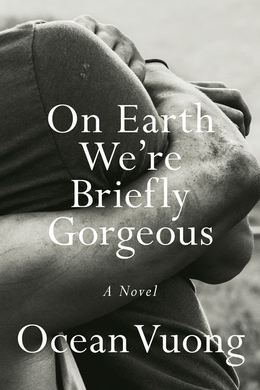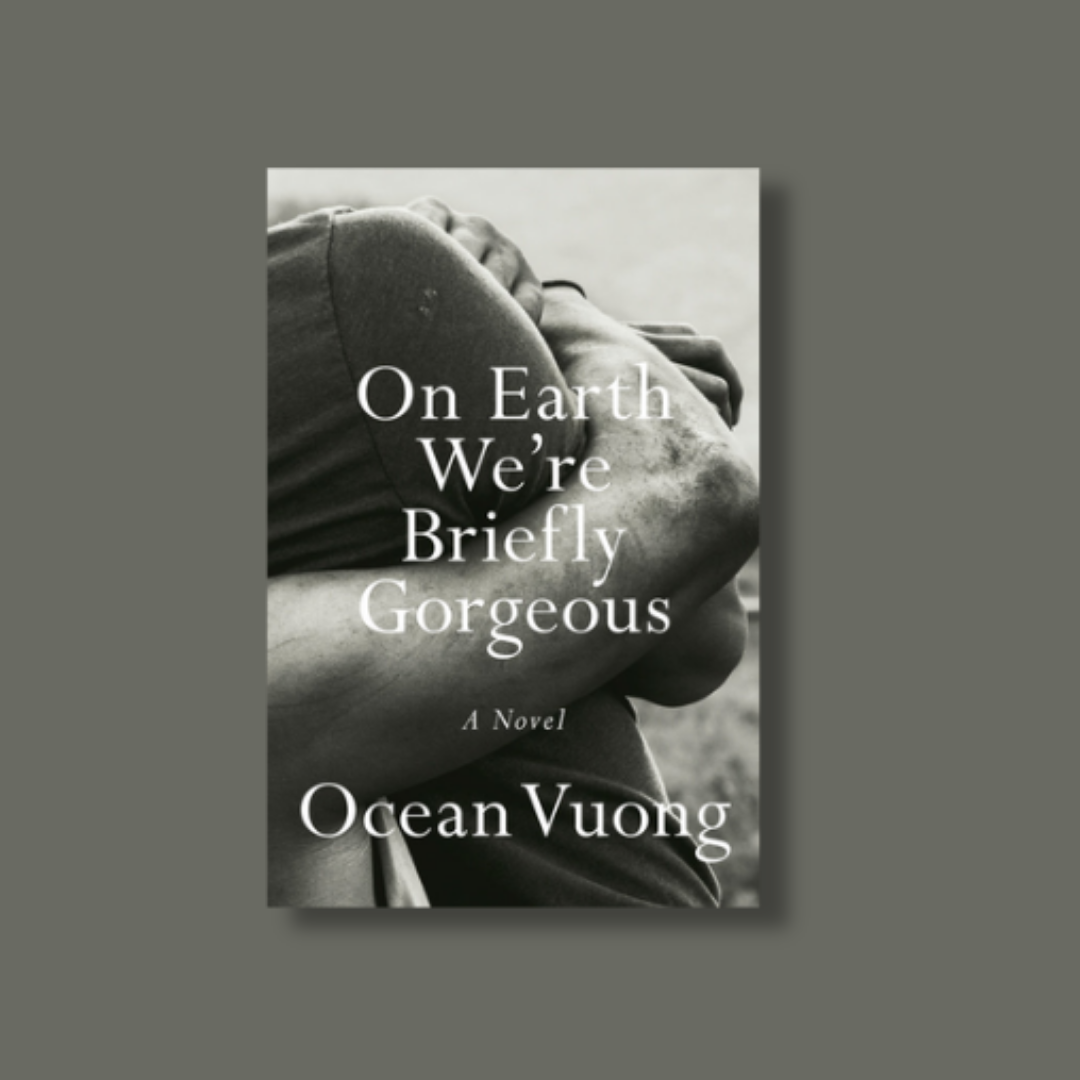
On Earth We’re Briefly Gorgeous is written in the form of a letter from the novel’s narrator, Little Dog, to his mother, Rose. Little Dog’s letter travels back through his memories and experiences growing up in Hartford, Connecticut as both queer and Vietnamese. His mother is grappling with the effects of a traumatic childhood in Vietnam, an abusive husband (Little Dog’s father), and life as an immigrant in America. These struggles manifest in various ways, one of which is Rose’s abusive behavior toward Little Dog.
Vuong focuses on the theme of intergenerational trauma heavily throughout the novel, as the narrator grapples with his mother and grandmother’s abuse and PTSD. The novel includes many references to animals that strongly connect to the events in Little Dog’s life. We follow this narrator through experiences of grief, love, and exploration as he recounts everything to his mother. However, we learn that Rose cannot read, which frames the novel in a different lens. This is a letter that is sent, but not necessarily meant to be received.
Vuong emphasizes the relationship between love and trauma throughout this story. They are framed as deeply intertwined and sometimes indistinguishable from each other. Little Dog has suffered so much at the hands of his mother, but he continues to love her. I think this is a very realistic portrayal of many relationships, especially familial ones. A part of the human experience is feeling all of these emotions toward a situation or person at a different point in time, but coming to terms with that fluidity and realizing they can both exist. Even the title of the novel alludes to a sense of beauty, although the contents itself depict struggle and grief.
The theme of identity is extremely prominent in Little Dog’s letter as well. In the novel, Little Dog reflects on a relationship he had with a boy named Trevor. Trevor is at war with his identity, refusing to accept that he is gay because of his preconceived notions of masculinity. He wants to be seen as a ‘man’ so badly that it interferes with his acceptance of his own identity and his relationship with Little Dog. I thought this theme was very relevant. As college students just becoming adults, I’m sure a lot of us are still very much impacted by societal expectations. Whether those expectations surround success, normalcy, popularity, sexuality, etc.. It’s common to want to portray yourself to the world in a certain way and to accept or reject parts of your identity to fit into that portrayal.
I found my initial reading of this book to be enjoyable. Vuong’s writing style turns this semi-autobiography into a reflective and engaging story. I felt for the characters and their struggles. However, I wasn’t finding myself connecting deeply with the text. I didn’t have many, if any, similarities to Little Dog or his experiences. I read this novel for my Asian Literature class last semester, so I was required to discuss it in a class setting and complete a project on it as well. It was only after these discussions that I began to deeply empathize with this work.
The more I thought about it, I could see the ways that intergenerational trauma has affected my own family. My parents are both victims of intergenerational trauma. Although I always knew this, I never felt comfortable discussing it with them or learning more about how their experiences have shaped them. Not only did Vuong’s novel and my class project serve as a way to casually bring the topic up to them, it also made me more curious about it. Although Little Dog’s mother is still alive at the time he is writing his letter to her, it still feels like it was something being written ‘too late’, almost. I see this novel as Little Dog’s way to work through his thoughts and emotions around all of these formative moments, and to deal with the conflicting feelings he has toward them. Although his mother is alive, he has lost other loved ones by the end of the book. Vuong’s novel feels to me like the tying up of all of these loose ends in the narrator’s life. This led me to want to tie up some in my own life as well. I am so glad I brought the topic up to my parents and my grandmother because I learned so much about them. It became clear the impact that each of their experiences has had on them, and how that has carried on to their children.
At one point in the novel, Vuong considers how “[t]hey say that every snowflake is different – but the blizzard, it covers us all the same” (Vuong 134). I think everyone can find a bit of this novel in their own stories because we all have different tales of pain and survival, of love and hate, of trauma and reconciliation. We’re all shaped by these experiences and have no other choice but to carry them with us as we go, and to figure out what to make of them. Literature helps us make sense of who we are, and it is so important to read about lives and experiences that mirror our own for this reason. I loved this novel because it was a captivating depiction of the human experience that prompted me to examine my own life and learn more about my family and their lives as well.

You must be logged in to post a comment.